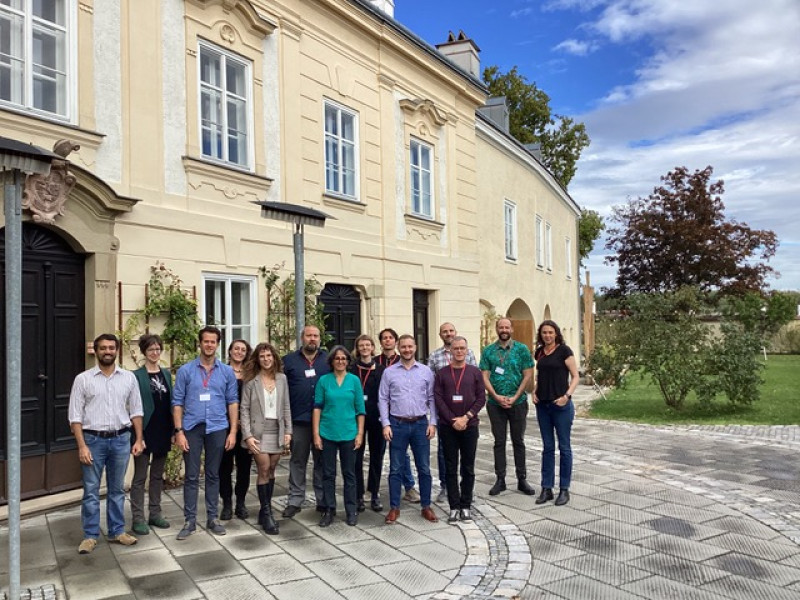News Details

The 42nd Altenberg Workshop in Theoretical Biology was held at the KLI from 8th to 11th October 2024. The topic for this edition, organised by Joeri Witteveen and Federica Bocchi of the University of Copenhagen, was "Aims, Norms, and Values in Scientific Classification for Biodiversity Conservation". The workshop brought together 14 scholars from Australia, Austria, Canada, Denmark, India, New Zealand, Spain, South Africa, UK, and USA, spanning the biological sciences, social sciences and humanities, and working on aspects of classification and categorization in taxonomy, biodiversity science and conservation biology.
Conservation biology and biodiversity science are closely intertwined with ethical considerations and societal values, which influence how we define conservation areas, organize key concepts, and create biodiversity data systems to support conservation efforts, and also which species are seen as important and worthy of protection. These challenges also raise important philosophical questions about the risks and trade-offs involved in applying theory to real-world practices. This workshop brought together philosophers, anthropologists and biodiversity researchers, such as ecologists and taxonomists, with an aim to map, discuss and evaluate different perspectives on the role of values in species classification at the interface with conservation policy and practice.
The talks and discussions in the workshop, broadly, touched upon four themes:
1. The role of norms and values in defining and operationalising units of conservation (Frank E. Zachos, Arne Mooers, Carly Cook, Joeri Witteveen, Beckett Sterner)
2. The challenge of defining invasive species across biological scales (David M. Frank, Carlos Santana, Yasha Rohwer)
3. Stakeholder inclusion and engagement in conservation research and practice (Emily Parke, Federica Bocchi, Linsey Gilson, Victoria Reyes-Garcia, Hari Sridhar)
4. Categorisation of conservation risks in relation to biocultural value
Members of the KLI also attended the talks and engaged closely with the workshop speakers during the breaks and workshop dinners in Vienna and Klosterneuburg, including a visit to a traditional Austrian heuriger.
The workshop was co-funded by the KLI and the research project “Tackling the Conservationist’s Dilemma,” sponsored by the Independent Research Fund, Denmark.
List of talks
|
Speakers |
Title of talks |
|
|
“Carving nature at its joints”? Bona fide boundaries and decisions by fiat in taxonomy |
||
|
Joeri Witteveen |
Epistemic risk in attributing extinction risk |
|
|
Carly Cook |
What is a species, who decides and why does it matter for conserving biodiversity? |
|
|
Beckett Sterner |
A Network, Not A Hierarchy: Pluralistic Governance for Species Lists in Conservation and Systematics |
|
|
Federica Bocchi |
A Classification of Value-Laden Practices in Conservation |
|
|
Hari Sridhar |
The place of science [and scientists] in conservation decision-making: a view from Indian conservation biology |
|
|
David M. Frank |
Let the Terminological Tempest Rage On? Conceptual Engineering and Pluralism in Invasion Biology |
|
|
Carlos Santana |
Invasive Microbes |
|
|
Yasha Rohwer |
Biodiversity Conservation and Mus musculus: a consistency problem |
|
|
Lindsey Gilson |
“Thresholds of Potential Concern” as tools for integrating long-term perspectives and stake-holder values into conservation decision making |
|
|
Emily Parke |
Conservation in Aotearoa New Zealand: Norms and Values in Plain Sight |
|
|
Victoria Reyes-García |
Biocultural aspects of species vulnerability |
|
|
Arne Mooers |
What is a bit of biodiversity worth conserving? |
|

